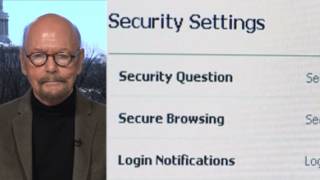
Related
A federal court in California has issued a ruling that’s raising widespread alarm among advocates for civil liberties. Last month, the US Court of Appeals for the Ninth Circuit said law enforcement agents can sneak onto a person’s property, plant a GPS device on their vehicle, and track their every movements. The court’s ruling means the spying is legal in California and eight other Western states. [includes rush transcript]
Transcript
JUAN GONZALEZ: A federal court in California has issued a ruling that’s raising widespread alarm among advocates for civil liberties. [Last] month, the US Court of Appeals for the Ninth Circuit said law enforcement agents can sneak onto a person’s property, plant a GPS device on their vehicle, and track their every movements.
The ruling came in the case of Juan Pineda-Moreno, an Oregon resident who was suspected of growing marijuana. In 2007, Drug Enforcement agents snuck onto Pineda-Moreno’s property in the middle of the night and planted a GPS device on the bottom of his Jeep. Pineda-Moreno ended up pleading guilty to the marijuana charges, but has challenged the government’s evidence obtained through GPS. But the US Ninth Circuit Court of Appeals has now twice rejected his case.
In a dissent, Chief Judge Alex Kozinski accused the majority of, quote, “cultural elitism” for issuing a ruling he said would only affect lower-income Americans. Kozinski says anyone who can afford to surround their homes with security gates, fences and booths would effectively be exempt.
The court’s ruling means the spying is legal in California and eight other Western states. In a separate case this month, the US Court of Appeals for the District of Columbia Circuit took a different view, ruling the GPS spying illegal. The issue is expected to eventually reach the Supreme Court.
Adam Cohen is an attorney and writer for Time magazine who has been following this story. His article for Time magazine is called “The Government Can Use GPS to Track Your Moves.” He’s also a former member of the New York Times editorial board.
I recently interviewed Adam Cohen, and I began by asking about the origins of the case.
ADAM COHEN: The police suspected that a particular individual was involved in marijuana trafficking, so they wanted to follow his movements. And at that point, the question was, did they need to get a search warrant, which normally you would, — the Fourth Amendment guarantees you the right to privacy — to put a GPS device on his jeep. But they decided not to. They decided to sneak onto his property in the middle of the night, into his driveway, put this device on his jeep, and then follow him around and see where he went.
When he challenged the evidence and said, “Look, I have a Fourth Amendment right not to have this done; you should have gotten a warrant,” the Ninth Circuit, as you said, issued this very bad decision in which they said you don’t have privacy rights of this kind on your own property and on your own car. And it’s very troubling and very important, because the government has much more capacity now to follow people in this way, with all the new kinds of technology. So, if the Fourth Amendment doesn’t adapt properly to these new technologies, we’re really going to lose a lot of privacy rights.
JUAN GONZALEZ: But what arguments did the court use to say that the police had the right to enter his property, in essence?
ADAM COHEN: Well, one problem is there’s a very bad decision from the 1980s from the Supreme Court, where the police had put a beeper on someone’s truck. And at that point, we didn’t know that much about technology. The court just said, “You know, it’s not an invasion of privacy, because if you’re driving around on public streets, the police could watch you anyway, if they’re standing on the street — it’s a public act — so we’re going to say this is also public, not a Fourth Amendment violation.” The problem is, in the 1980s, we couldn’t envision just how intrusive these devices would be, how much they could follow us. So, in a way, the Ninth Circuit was just following what the Supreme Court has said, but we need to rethink that doctrine.
JUAN GONZALEZ: What are the implications in terms of the creation of, in essence, a complete surveillance state by this expanded use of GPS by law enforcement?
ADAM COHEN: No, that’s exactly right, because when you think of a police state, you think of the KGB or the Stasi in East Germany. You think of men following you around with notebooks and writing down everywhere you go. With technology now, the government doesn’t need to do that. They could literally put a device on everyone’s car. They could start putting them on people. And we would think that’s really invasive, they shouldn’t be able to do it. But with these rulings, the Ninth Circuit ruling, maybe they can do it. But as you said, there’s a good ruling from the DC Circuit. There have been some other good rulings. And it may be yet that we’ll win on this fight, but the Ninth Circuit decision really is troubling.
JUAN GONZALEZ: In his dissent, Chief Judge Alex Kozinski talked about cultural elitism. What — I gave some explanation of what he meant, but if you could you expound on that.
ADAM COHEN: Sure. You know, the court was trying to decide whether this driveway outside of the defendant’s house was private, and they said, well, even though it’s on his property and it was two feet from his trailer home, they said not private, because all kinds of people from the neighborhood could walk across the driveway. And it was because of that, they said it wasn’t really private. So, Chief Judge Kozinski, rightly in his dissent, pointed out, well, you know whose driveways are not open to being walked on by people from the neighborhood, children and so forth? Rich people’s, because rich people put up gates and fences and all kinds of alarms. So he’s saying, are we really creating two levels of privacy here — one for rich people who — their driveways are protected and they’re private, and then regular people can’t protect their driveways, don’t have the money for all these fences, and they have no Fourth Amendment rights?
JUAN GONZALEZ: Does the court’s — does the Ninth Circuit decision limit in any way, for instance, the potential for government agencies to routinely use GPS to track people? For instance, putting it on your license plate when you renew your license plate? I mean, in other words, is there a limit on the potential of the use of GPS by the government?
ADAM COHEN: Right, no, there really isn’t a limit, because the Ninth Circuit decision was about two things. One is whether it was wrong to go on the guy’s property — they said no — but also, whether it was wrong just to follow someone around a GPS device without a warrant. And the court said no to that, too. So you’re exactly right, they could start implanting GPSes in your license plate. That’s a great idea. I’m sure the government will be glad to have been tipped off to that. So they could actually have it built in and follow, and you would have no Fourth Amendment claim not to do it, because their idea is, as long as you’re driving around on public streets, as long as you’re where police could see you, OK to monitor you twenty-four/seven.
Now, the DC Circuit, this other very important federal court which went the other way, they proposed a different way of looking at this, something they called the “mosaic theory of privacy,” which says, you know, let’s not just look at whether you’re on the public street, let’s look at how much information in total is the government keeping about you. If they follow you for a month, they begin to have a mosaic, a whole collection of information, about what you do. The DC Circuit said that’s beginning to be a huge invasion of privacy. So, in a way, the DC court laid the groundwork for what the Supreme Court could do, which is to say, let’s rethink what we did in the 1980s, let’s think of privacy in this new way, this mosaic way, and say if the government is really going to track you that much, in so many different aspects of your life, they need to start getting warrants. And that would be a great thing.
JUAN GONZALEZ: And any sense if this — once this does go to the Supreme Court, how the justices — obviously there are two new justices in recent years, but how the justices have tended to rule on these kinds of cases in the past?
ADAM COHEN: You know, this one could really go either way. One thing that has people a little bit optimistic is that Alex Kozinski, who wrote this very, very angry dissent, is a very conservative judge. He was appointed by Ronald Reagan, a leader of the conservatives. So the fact that he wrote such an angry dissent, in a way, he was maybe, you know, appealing to his fellow conservatives on the court to take these privacy rights seriously. And I think the liberals would already be inclined that way. So it may be that there would be five votes to do the right thing.
JUAN GONZALEZ: What about also the uses of E-ZPasses — increasingly, more and more motorists are using those — and the government’s use of E-ZPass records or Metro card records, in terms of tracking individuals in criminal cases?
ADAM COHEN: Well, in fact — great question. People don’t think about this, but there actually are databases being collected, and they’re only one subpoena away from the government. So when you go over those bridges and tolls and pay the tolls with your E-ZPass, the government is keeping a record of that. Every time you swipe your Metro card at a subway, the record is being kept of that. But I think even beyond that, think about how —-
JUAN GONZALEZ: And there’s no requirement for, after thirty days or sixty days, to eliminate those records?
ADAM COHEN: No. Civil rights advocates -— civil liberties advocates always say we should purge the data, only use the data, you know, if — the MTA often says, “We need it to be sure that the machines are working properly.” But after thirty days, you don’t, and you should purge it. They don’t — no one — the government never likes to purge data.
But another thing to think about is, so often now when people want to go somewhere, they do a little Google search, right? They go to Google directions or MapQuest, and they — so people are keeping that — records of that, too. So if you think about how much information Google has about what you do every day, if you’re going to go out, you know, to dinner with friends, you often type in the address, well, that’s being stored somewhere, too. And all of this, you know, it’s in private hands when Google has it, but it’s one subpoena away from the government. If they want to know where you were on Thursday night, they could subpoena Google or MapQuest and see if you got directions to go there.
JUAN GONZALEZ: So, in light of this, I mean, the battle that’s been much in the news the past few weeks about the ability of governments to get into a BlackBerry — the BlackBerry system — is BlackBerry, in essence, despite its own corporate interest, attempting to fight for the maintenance of certain privacy rights?
ADAM COHEN: Well, we don’t really know what BlackBerry’s corporate interests are, right? They’re getting pulled in two different directions. On the one hand, they sell BlackBerries as being incredibly private and secure to corporations, so they want to protect that. But on the other hand, a lot of foreign governments are really leaning on them and saying, “We want this information. If you want to come into our markets and do well here, you’ll give us this information.” So, in a way, it’s hard to know which way their profit motive lies. But everyone should be worried. You don’t think when you’re sending emails that someone may be reading them and storing them and, again, that the government could get them at any point. You know, when you’re texting quickly, you’re not thinking, “This is a permanent record that could be used against me in court.” You know, but that’s all going on. Almost everything we do now is being tracked in some way. And we’re beginning to see the need to push back with, you know, some legal doctrine to protect people.
JUAN GONZALEZ: Adam Cohen is an attorney and writer for Time magazine. His latest article is called “The Government Can Use GPS to Track Your Moves.”












Media Options